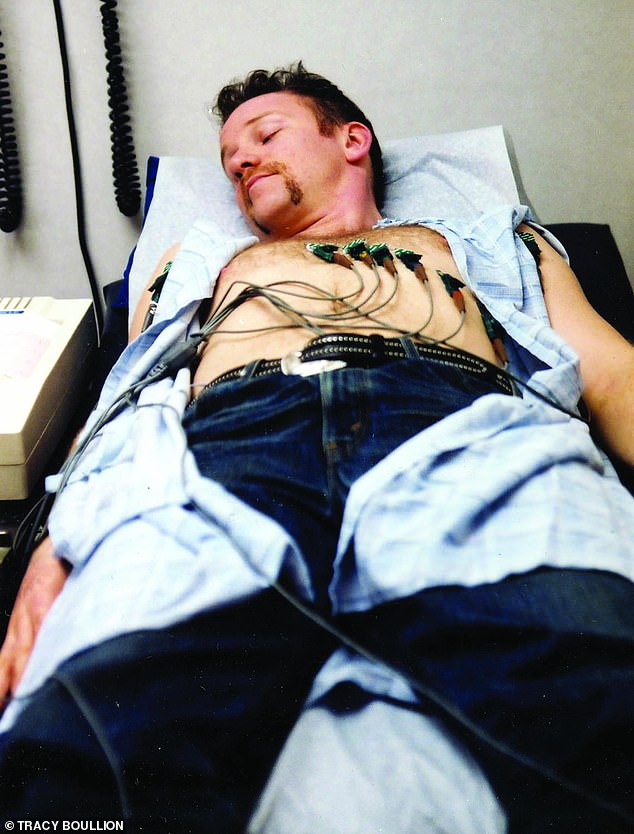The death of Morgan Spurlock, the man behind the 2004 Super Size Me fast food exposé, from cancer at age 53 has once again put his health experiment into the spotlight.
There is no indication that his stunt from 20 years ago, in which he only ate McDonald’s food for a month, is related to his death.
But the experiment had a huge effect on his body at the time: it skyrocketed his cholesterol and body fat levels and turned his “liver into pâté,” as his doctor put it.
His health transformation was so impactful that it led McDonald’s to eliminate its super-sized menu options, and it was a turning point in the way many Americans viewed fast food.
But years later it was learned that Spurlock was struggling with alcoholism at the time of filming, which may have influenced the results.
His physical and mental health declined rapidly and he gained 24.5 pounds by the end of the experiment.

On the second day of his experiment, Spurlock became nauseous to the point of vomiting out of his car window.
In the documentary, the doctor who examined him during the experiment said that fast food was “stinging his liver” and that he looked like an “alcoholic after a binge,” but Spurlock did not mention his alcoholism.
It wasn’t until 2017 that Spurlock shockingly admitted that he had “drank constantly since the age of 13.”
He added: “I haven’t been sober for more than a week in 30 years.”
This led many to wonder if this was really the reason why his liver looked like that of an alcoholic in the 2004 documentary, and if the tremors he suffered in the film were symptoms of alcohol withdrawal.
Spurlock’s 2017 confession also contradicts what he said on Super Size Me.
When the doctor initially asked, “Do you drink alcohol?”, Spurlock responds, “Now? None.”
At the start of the experiment, Spurlock weighed 185 pounds and had a body mass index (BMI) of 23.2, which is considered healthy.
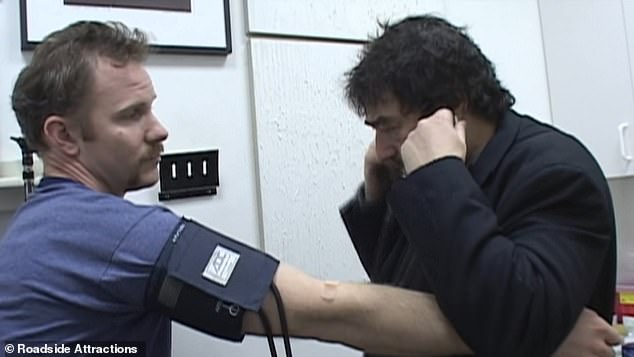
His doctor told him that his liver was failing and had become soft like pâté. He also gained about 10 pounds in a week and his cholesterol skyrocketed.
After a few days of eating only fast food, Spurlock began to experience negative health effects.
He gained a significant amount of weight and his BMI increased to 25.5, which is considered overweight.
By the end of the experiment, he had gained 24.5 pounds and his BMI increased to 30, or obesity.
Their cholesterol also increased from a healthy level to 230 mg/dL (6.0 mmol/L), which is considered “borderline high risk” for cardiovascular disease, stroke and other heart problems.
It suggested that fatty deposits had built up in his arteries, restricting blood flow to his heart.
A growing body of research has also found strong links between high levels of refined sugars, saturated fats, and processed ingredients and depression, something Spurlock struggled with during the documentary.
The increase in blood sugar caused by eating can cause tiredness later, making the person less likely to participate in activities such as socializing that could prevent depression.
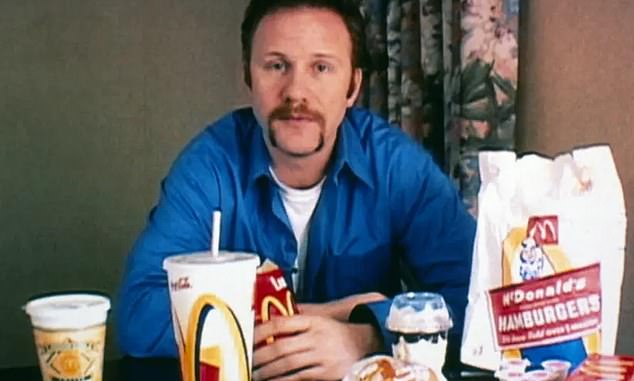
The rules of the experiment were to eat everything on the menu at least once a month and always have to answer “yes” to the question: “Would you like to do that in Super size?”
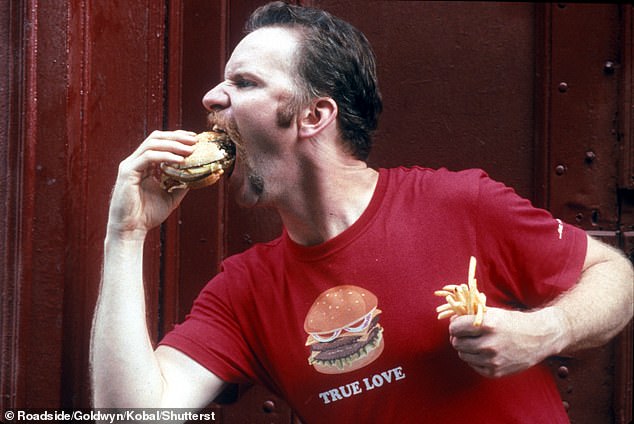
At the end of the experiment, Mr. Spurlock had gained about 25 pounds. His BMI shot up from 23.5 to 30, putting him firmly in the obese category.
TO 2014 study in Iran found that among 13,486 participants, a significant association was found between junk food consumption and psychiatric distress. More violent behaviors were also significantly associated with junk food intake.
Mr. Spurlock’s sexual desire was also affected. High levels of sugars and saturated fats restrict blood flow, making it difficult to perform in the bedroom.
About halfway through, Spurlock’s girlfriend, a vegan chef, tells the audience that she’s “having a hard time getting up.”
And eating these foods also causes weight gain. Heart problems and high cholesterol can also cause erectile dysfunction, while trans fats are known to decrease libido.
Just one day after starting the experiment, he vomited profusely. Shortly after, she noticed strange pulsations in his stomach.
When your doctor told you that your liver was becoming soft and mushy, telling you that your liver was “turning into pâté,” he meant that the food was changing the way your liver functioned to the point that it couldn’t detoxify the blood or metabolize nutrients. and produce essential proteins.
The rules of the experiment were to eat everything on the menu at least once a month and always have to answer “yes” to the question: “Would you like to do that in Super size?”
“SGOT was originally 21 years old,” according to the doctor, which means that the liver began to function normally.
He added: Now it is 130. And SGPT was originally 20.
“Now it’s 290, an increase of more than tenfold… Anyone would think now that you’re sick.”
He added: “If someone did this to the liver with alcohol, in theory it could destroy the entire liver… Kill the liver cells and you would suffer liver failure.”
“I’ve never heard of anyone doing this to their liver on a high-fat diet, but I guess anything is possible.”
This indicates that the liver has been severely damaged due to toxins in food.
His diet put him at higher risk for heart disease due to its effects on his inflammation levels, as well as blood flow disturbances caused by high cholesterol.

Spurlock (pictured with friends) admitted to abusing alcohol in 2017, which may have influenced his liver problems and poor mental health.
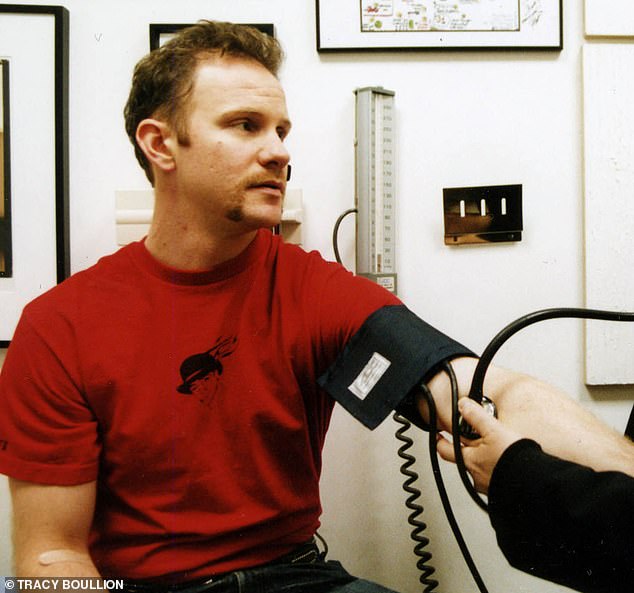
Spurlock’s documentary earned him an Oscar nomination and grossed more than $22 million worldwide.
Foods have also been linked to about 30 types of cancer, especially ovarian cancer. A study by experts at Imperial College London found that for every 10 per cent increase in ultra-processed foods in a person’s diet, there was a six per cent increase in the risk of death from cancer.
Spurlock admitted to abusing alcohol in 2017, which may have influenced his liver problems and poor mental health.
‘Is it because I’ve been drinking constantly since I was 13? “I haven’t been sober for more than a week in 30 years,” she said at the time.
The admission caused some to question his credibility, saying his poor liver health was similar to that of an alcoholic.
His 2004 hit captured the zeitgeist and earned $22 million at the global box office.
In one scene, just a week into the diet, he finds a hair in his parfait. In another, a doctor told her that she had gained about five percent of her body weight.
A few days later he said he was not feeling well: “It’s not that I feel bad, but that I feel very depressed.”
He added that he feels hungry again just an hour after eating.
Fast food contains few nutrients and, on the other hand, very high amounts of sodium and sugar. In fact, the chain’s largest Coca-Cola, which I drank often, contains 48 tablespoons.
When he was weighed at a checkup, his doctor reported that he had gained about 10 pounds in a week.
The doctor said, ‘One hundred and ninety-five pounds.
Mr. Spurlock said, “It can’t be.” We have to redo this. -That’s zero. -That thing is set to zero.
The doctor replied: ‘Actually, you have gained about 5% of your body weight.
“Losing and gaining weight so quickly is not healthy.”
He also described headaches and a throbbing sensation in his stomach and penis.
Food to him no longer seemed like food when the documentary was added, although he has since returned to McDonald’s.
They did not specify what type of cancer he was fighting or when he was diagnosed.
Spurlock also directed the 2013 One Direction concert and documentary One Direction: This Is Us.
The West Virginia native produced nearly 70 documentaries through his production company Warrior Poet.
The follow-up film to Super Size Me, ‘Super Size Me 2: Holy Chicken!’ was removed from the 2017 Sundance Film Festival after Spurlock admitted to sexual misconduct.

